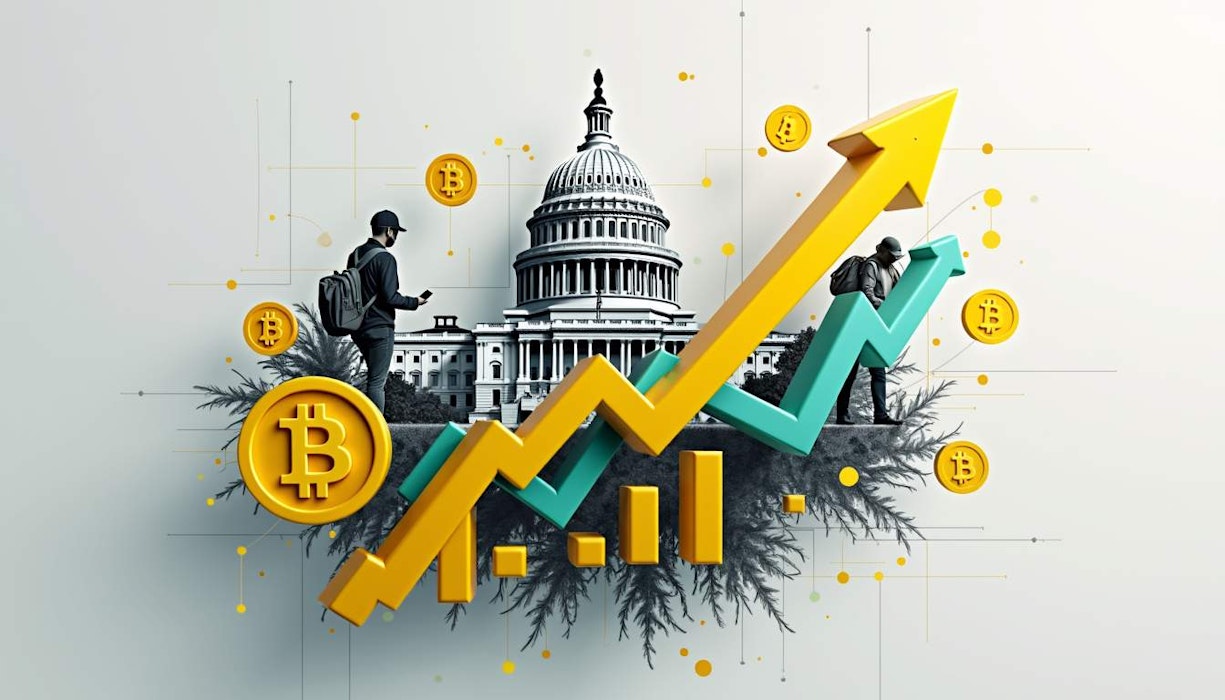How has Bitcoin evolved since its inception?
Bitcoin has transitioned from a niche tech project in 2009 to a household name in the financial world, hitting the milestone of $100,000 in December 2024. This evolution led to heightened scrutiny from various stakeholders including investors, regulators, and central banks, who are increasingly wary of what it means for economic stability and social cohesion. The core of the debate revolves around whether Bitcoin genuinely threatens democratic institutions and social stability or if entities like the European Central Bank are simply reacting to the emergence of financial innovation.
What are the implications of Bitcoin's volatility?
Bitcoin's price instability has been a consistent concern. For instance, during the March 2020 stock market crash spurred by the COVID-19 pandemic, Bitcoin's return fluctuations were notably lower than those of approximately 900 stocks in the S&P 1500 and 190 stocks in the S&P 500. Yet, in the aftermath of market disturbances—such as the Russia-Ukraine conflict and the US Banking Crisis—its daily realized volatility rankings were on par with or surpassed those of the S&P 1500. Such volatility invites speculative behavior, leading to hasty investment decisions that could destabilize financial systems.
Can Bitcoin serve as a financial equalizer in hyperinflationary nations?
In hyperinflation-prone nations like Venezuela and Argentina, Bitcoin has proven to democratize access to finance. In these scenarios where local currencies have plummeted in value, cryptocurrencies have emerged as stable stores of value and transactional media. This phenomenon is largely fueled by the necessity to counteract extreme inflation and capital controls, showcasing how cryptocurrencies can bridge gaps in financial access that traditional banking systems and government restrictions create.
How does Bitcoin's pseudonymous nature challenge state authority?
Bitcoin's pseudonymous structure introduces formidable challenges to state authority and economic stability. Regulatory challenges make it difficult for authorities to trace and prevent illicit activities like money laundering and tax evasion. The absence of intermediaries in Bitcoin transactions diminishes recourse options in cases of fraud, potentially destabilizing the economy. Moreover, this pseudonymity can be leveraged for illicit conduct, raising regulatory flags and necessitating robust oversight.
In what ways do regulations shape Bitcoin's disruptive potential?
Regulatory frameworks significantly influence Bitcoin's disruptive potential. In the U.S., federal agencies impose regulations that dictate how financial institutions engage with digital assets—ranging from AML standards to tax compliance. The Financial Stability Board (FSB) works to harmonize regulations globally. Through these regulations, banks begin to view cryptocurrencies as opportunities rather than threats, enabling them to embrace these technologies and improve their offerings.
What are the implications of Bitcoin on democratic principles?
The implications of Bitcoin on democratic principles present a complex duality. On one hand, it fosters financial independence and aligns with democratic ideals of personal freedom and empowerment. Conversely, it undermines governments' control over economic stability through monetary policy. The global and pseudonymous aspects of Bitcoin complicate regulatory efforts, making it challenging for governments to enforce tax compliance and counteract illicit activities. This duality highlights the need for a proactive engagement with Bitcoin, as it has the potential to redefine financial systems while impacting democratic institutions and social stability.
How does Bitcoin's volatility affect economic stability?
Bitcoin's extreme price fluctuations, observed during events like the FTX collapse and the U.S. banking crisis in 2023, reveal its capacity to destabilize markets. Historically, Bitcoin's volatility has consistently outstripped that of traditional assets, often surpassing major stock indices like the S&P 500. Such volatility can have ripple effects across the market, impacting those who do not directly invest in cryptocurrencies. To counter these risks, some economists advocate for regulatory measures, including price controls and taxation on speculative gains, to avert wealth concentration and maintain societal stability.
Can Bitcoin offer stability within the financial sector?
Critics emphasize Bitcoin's volatility, while proponents underscore its potential as an alternative to centralized financial systems. The 2008 global financial crisis exposed the frailties of centralized institutions, underscoring the need for diversified models. Operating outside conventional systems, Bitcoin presents an alternative that could complement traditional finance and mitigate systemic risks. This duality positions Bitcoin as a potential stabilizing force in certain contexts, even as it introduces new challenges.
What does the future hold for Bitcoin regarding democracy and financial stability?
The ultimate influence of Bitcoin on democracy and social stability hinges on society's and government’s adaptation to this innovation. The path to success lies in a balanced approach that capitalizes on Bitcoin's potential benefits—such as financial inclusion, technological innovation, and individual empowerment—while addressing the inherent risks to economic stability and social cohesion. Policymakers must work collaboratively across borders to establish cohesive strategies that tackle issues like wealth inequality, market volatility, and regulatory gaps. Public education is equally vital, ensuring that individuals comprehend the risks and opportunities presented by cryptocurrency.
Summary
Bitcoin's ascendance challenges conventional financial paradigms and raises pressing questions about its influence on democracy and economic stability. Its volatility, pseudonymous nature, and potential to democratize finance in hyperinflationary contexts offer both opportunities and risks. The future of Bitcoin will depend on the ability to engage thoughtfully and create balanced regulatory frameworks that harness its advantages while mitigating its downsides.
